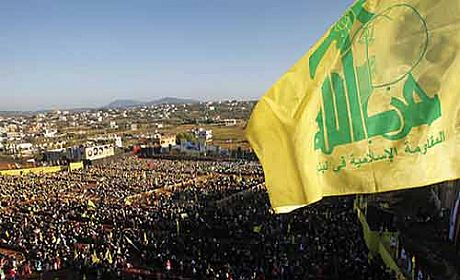Paris’ Strategic View towards Hezbollah

It did not take long for French officials to withdraw from their recent position based on placing Hezbollah on the EU terrorist list. Recently, three representatives from the Lebanese Parliament, one of whom was a member of the faction supporting the resistance meaning the Hezbollah faction, were invited by France so as to hold a French parliamentary meeting in Lebanon. The invitation of Dr. Ali Fayyad, one of the Hezbollah representatives in the Parliament, along with two other representatives surprised the observers in the beginning, for it was just recently that the EU listed the Lebanese Hezbollah on their terrorist list wherein the French had played a significant role. This measure taken by the EU was right after significant victories had been achieved by the Syrian army and the Hezbollah forces in the al-Qusayr region of Syria where the communication and logistics line between the Syrian opposition and the Lebanese groups was cut off.
Before noting the objectives and reasons behind this measure taken by the French officials, it must be said that the political behavior of the French in Lebanon with Hezbollah and principally with the Shiites of this country has key points, some of which will be mentioned in the following:
1. Following the 16-day Israeli war against Lebanon in 1996, the French officials were forced to recognize Hezbollah. This was achieved through their direct negotiations with Hezbollah in order to mediate an end to the war and sign a cease-fire agreement which was considered an important achievement for Hezbollah.
2. France has always considered itself as the traditional guardian of the interests of Christianity in the East, particularly in Lebanon. The issue of understanding between the minorities in this country has always been respected by the French. Although the Shiites of Lebanon enjoy a relative majority in this country in comparison with the other minorities, a general view of the different ethnicities and sects in the whole region shows that the Shiites and the Christians are minorities compared to the Sunnis, thus, Paris attempts to establish an understanding between these two groups. Of course, France is well aware of the increasing growth of the Shiites in Lebanon and has repeatedly reiterated the major role that this group will play in the future of Lebanon. This does not mean that they ignore the role of the Sunnis. In Lebanon’s equations, the biggest friend and ally of the French is the Sunni Hariri family which right now does not have its past position in the ethnic balance of power.
3. The other issue of concern for the French is terrorism and the growth of radical movements, the base of which is unfortunately among the radical Sunni groups. Both the Shiites and the Christians are threatened by the religious terrorists and ethnic radicals more than the Sunnis.
Based on the mentioned points, the French consider the grounds for cooperation with the Shiites and, of course, their main group i.e. Hezbollah, to be suitable now. Therefore, the official invitation of the representative of this group in Lebanon’s parliament was not limited only to his presence in the parliamentary meeting between France and Lebanon, but rather, based on reports, the Foreign Ministry of France held a long meeting with Dr. Ali Fayyad. It does not seem that, in this political meeting, the situation of Lebanon was the only topic of discussion and it seems that the latest situation in Syria, future scenarios and how to reach a political solution for this country have also been discussed in this meeting.
From a more profound perspective, it can be analyzed that the French are not satisfied with the fact that their traditional role in the developments of Syria and consequently in Lebanon is ignored and that they are behind the US and Russia in these developments. Establishing relations with Hezbollah does not mean that the positions of the French with respect to Syria have changed but it can, at least, indicate that France’s diplomacy in Syria beside the Istanbul-residing opposition of Damascus has not been successful and has proven futile.

